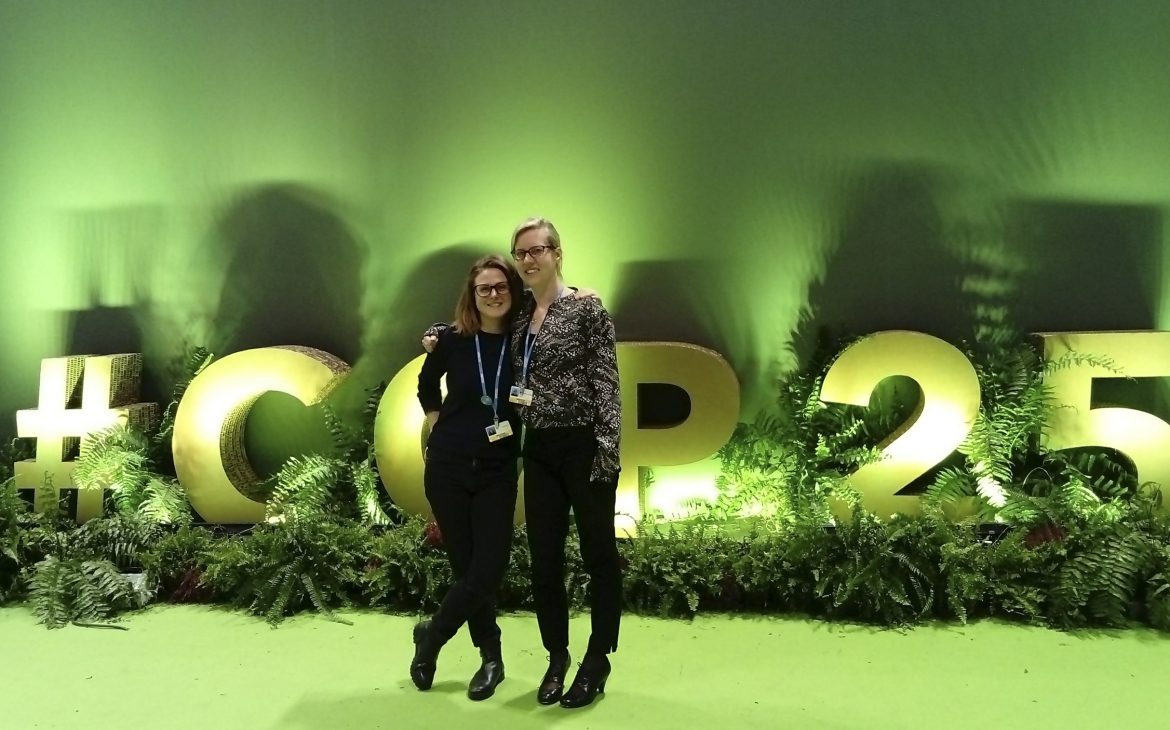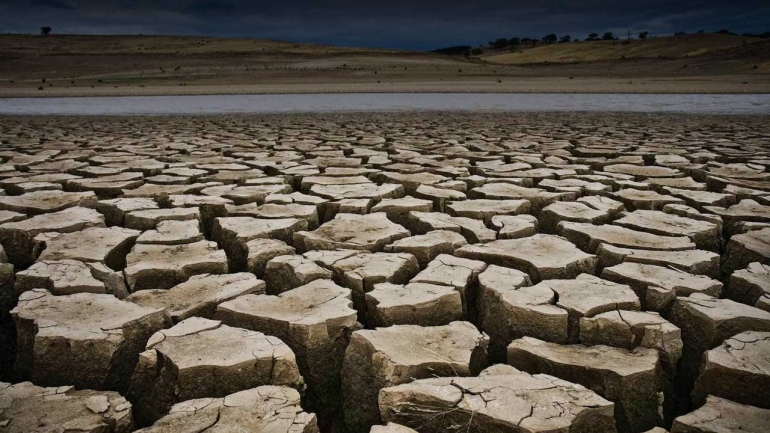At the beginning of December our ERC-funded project team (consisting of Professor Lisa Vahala, Dr Elisa Calliari and Angelica Johansson, a PhD student) packed our bags and made our way down to Madrid to observe the climate negotiations at the 25th Conference of the Parties (known as COP 25). Our research is focused on the governance and politics of climate change loss and damage and this was a particularly important year for this topic both institutionally, because the Mechanism governing loss and damage was up for review but also because of the growing urgency of dealing with climate change-related destruction. As we sat in negotiating rooms in the conference venue wildfires were ravaging Australia as a result of extreme temperatures and unprecedented drought.
We are undertaking three years of observations of the UN’s work on the governance of this topic but we all come at it from a different angle. As part of her PhD, Angelica is interested in science and policy interactions in the loss and damage debate. This year Lisa and Elisa focused on exploring the role and explaining the success of the Task Force on Displacement and followed discussions about migration and displacement in the loss and damage negotiations and in side events.
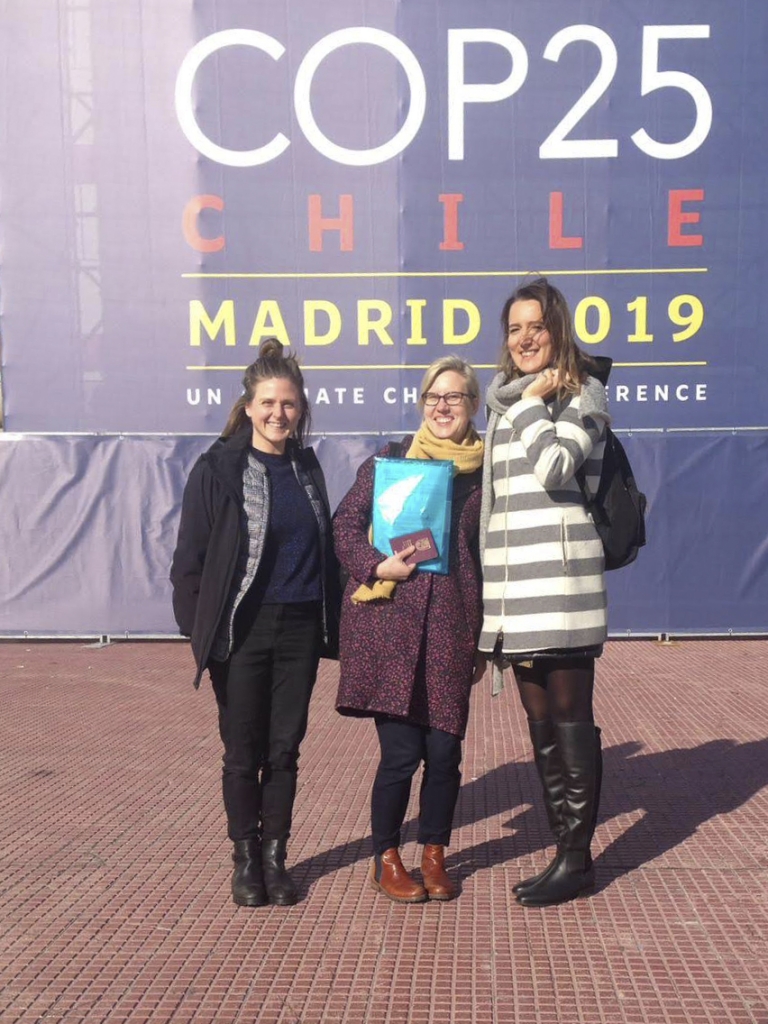
Loss and Damage in the negotiations
During these negotiations Parties were mandated to review the Warsaw International Mechanism (WIM) and adopt the WIM Executive Committee’s (ExCom) annual report. The Parties were also attempting to deal with governance issues, such as how the WIM should be governed, i.e. whether this stream of work should be governed under the Paris Agreement (CMA) or the UN Framework Convention on Climate Change (COP). The review, facilitated by Norway and Trinidad and Tobago, showed that the Parties had different ideas of how to further develop the work of the WIM. The G77 + China argued that ‘the WIM is greater than the ExCom’ and called for the establishment of an expert group on finance and support, as well as an implementing arm of the WIM which would provide technical assistance to developing countries. Developed countries on the other hand were largely resistant to making any significant changes to the work being undertaken by the ExCom.
During the first week, the loss and damage negotiations had been allocated to one of the larger meeting rooms because these discussions tend to garner a great deal of interest from civil society and other observer groups. This usually results in the room being packed with negotiators around the table and observers sitting on the floor or standing along the walls.
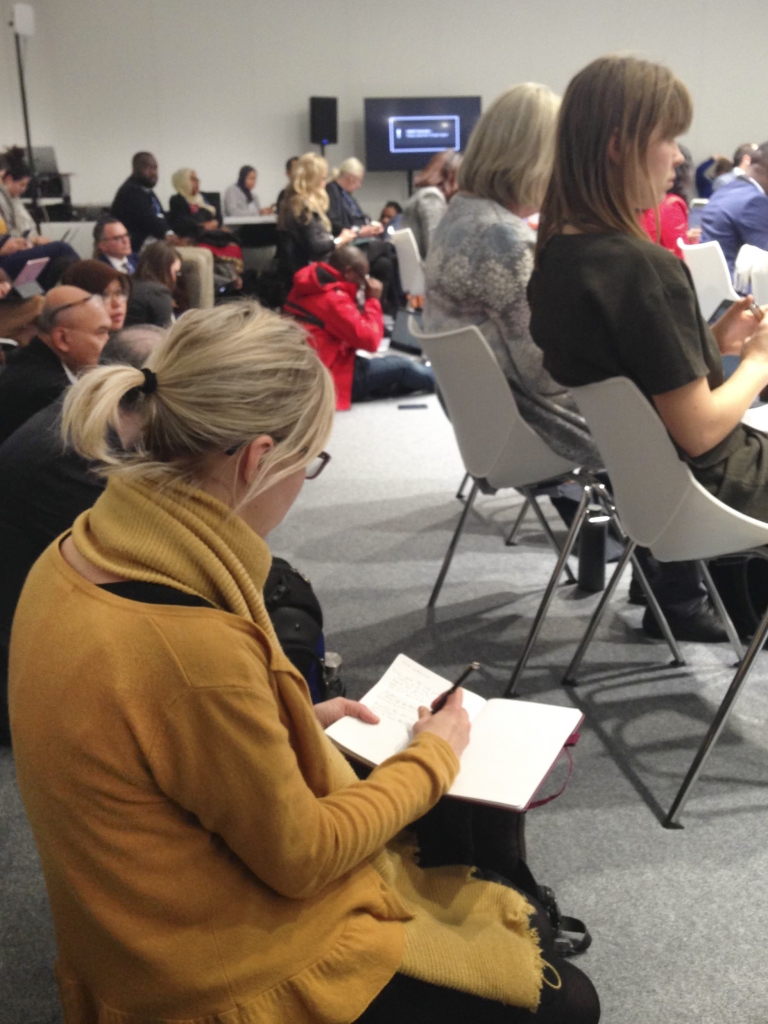
As the COP progressed, the loss and damage review did not. Initially, there had been 3 informal consultations scheduled plus the full-day mandated review workshop on the 1st December. The goal of the co-facilitators was to have what is referred to as ‘the decision text’ finalised in the first week. However, more sessions were needed, as well as informal discussions between the informal consultations (known in the literature as ‘informal informals’) which are almost always closed to observers. Despite the additional consultations, Parties failed to reach an agreement in the first week and the negotiations were taken over by Ministers who arrived during the second week. The fact that the negotiations normally are closed to observers in the second week poses a challenge for those of us who want to follow the progress (or lack thereof) of the negotiations and also raises important questions about the transparency of international law processes.
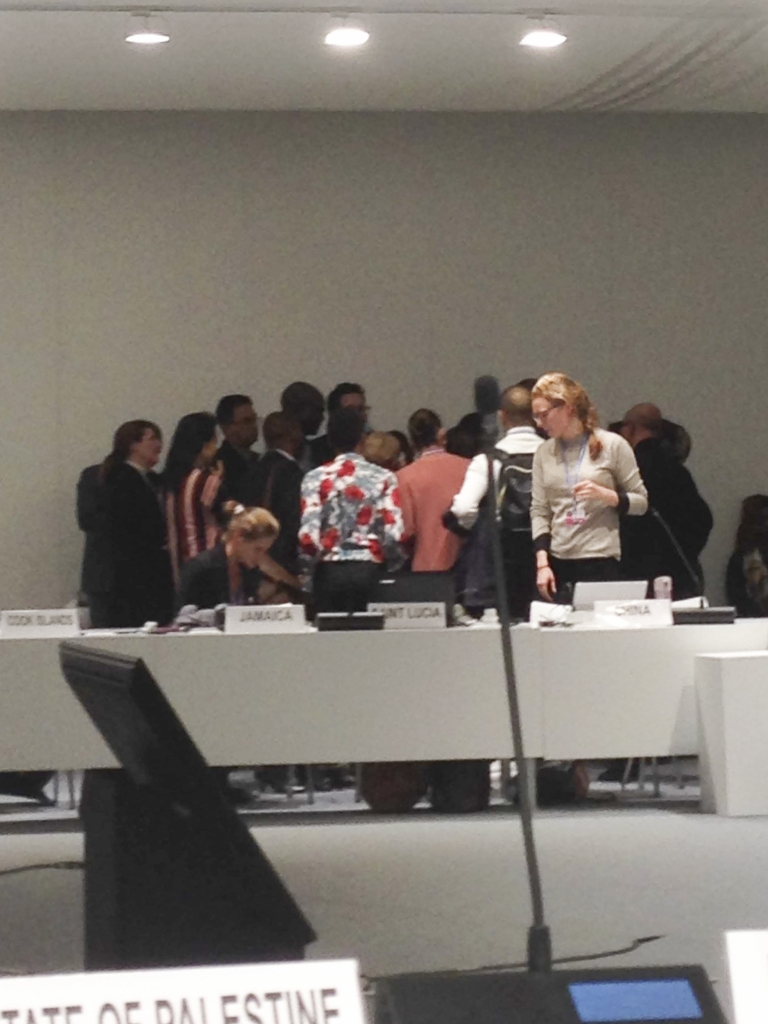
By the end of the second week there was some progress. Parties managed to produce a decision of the review. As a part of this decision, the WIM will establish ‘the Santiago Network’. This network will act as the implementing arm of the WIM and their role will be to provide technical assistance of how to avert, minimize and address loss and damage at a national, regional and local level in developing countries particularly vulnerable to climate change. The establishment of the Network is seen as an important success for developing countries but there is no concrete timeline for its operationalization. One issue on which there was little apparent progress concerned the governance of the WIM (see here). Parties will continue this discussion at next year’s negotiations in Glasgow in November 2020.
Collaborative Event Ethnography at COP
Conducting ethnographic research at mega conferences such as COP is hard. Loss and Damage is now being discussed in many rooms at any one time. Being a part of a team enabled us to capture how loss and damage was being considered in different spaces, track the evolution of how it is spoken about as well as understand how it may branch into negotiations about other topics (such as finance).
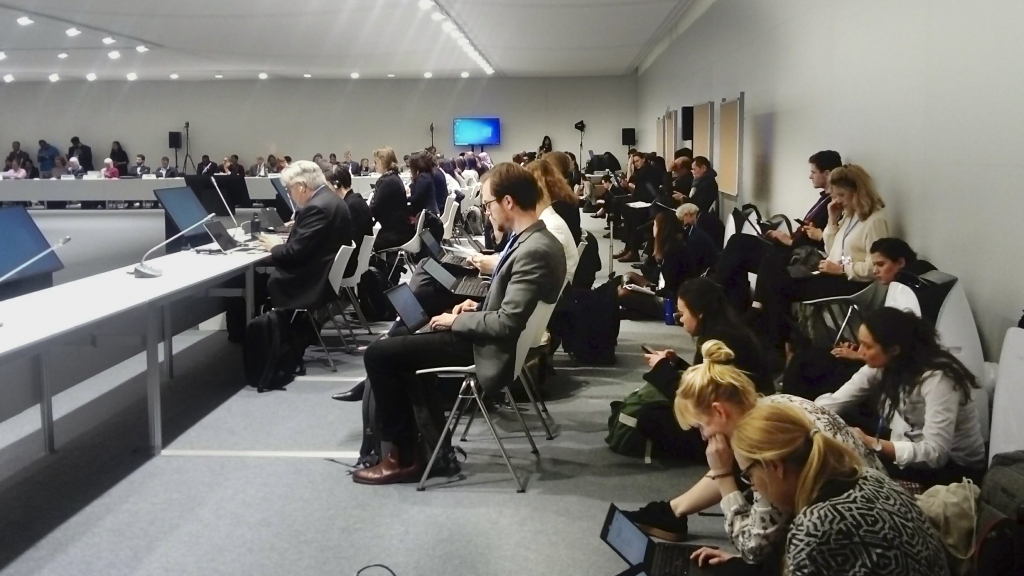
We also used collaborative event ethnography to observe events related to loss and damage outside of the negotiations. By having regular coordination meetings we could share information and update each other on the progress of loss and damage in the different spaces we followed. This also helped us to understand why some discussions took certain turns as well as helped us highlight factors that could potentially stall or progress the negotiations. It also helped us avoid contributing to the problem of ‘research fatigue’ at the negotiations. We try to be respectful of research participants’ time and know that the negotiations can be intense for everyone. By coordinating on who we were going to approach for interviews and undertaking some interviews jointly we are able to generate data in a more efficient manner.
Throughout 2020 the CCLAD team will continue to follow the evolution of loss and damage governance at both national and international level. Keep an eye out for some of our forthcoming publications and thanks to all who have contributed to our research to date. We want to wish everyone a happy new year!



